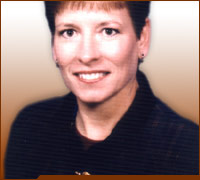Reflections: Linda Brigance, FedEx Express

I believe that the three most important industry developments in 2005 have been wireless, wireless, and wireless.
 |
| Linda Brigance, CIO for FedEx Express Asia-Pacific, finds wireless "fantastic" |
I'm a huge supporter of wireless technology, so I believe the ongoing advancements of wireless technologies have been fantastic. It will also be the major change agent in most businesses as we move to wireless scanners, PCs and other appliances like Bluetooth and BlackBerry devices.
GPRS and Bluetooth have made a tremendous change in how we work today and provided the support and ability for us to be so mobile. The ability to always be 'on' and connected is great. It also provides us some challenges to ensure we keep our perimeters safe in the very mobile environment.
I believe that we are heading towards pervasive computing, that is, where technology becomes so much a part of our everyday life that we don't even think of it as technology.
Of the different emerging technologies this year, which do you think were over-hyped, and why?
Personally, I don't think any of the technologies have been over-hyped. However some consumers, either individuals or businesses, may look to a product as a 'fix it', something that they believe will solve everything for them. Unfortunately, this expectation often leads to disappointment and a lack of trust in other technologies or products.
Some technologies are better suited for some applications, but there isn't a one-size-fits-all technology that addresses all problems. This is why we need to look at each product or technology and understand how it can address a specific need. In our organization, we may look to a specific product to help improve customer experience or operational efficiencies before committing ourselves to it.
As a CIO, one of my challenges is to understand a new technology and how it will fit into the corporation before bringing it into the company to solve a problem. I think all the new emerging technologies have a place, it's just finding the right product for you, and a time and place to introduce them.
What would you say will be the top security issue of 2006? I believe Internet security will continue to be at the top of people's minds in 2006, and viruses and worms, hackers, and wireless vulnerabilities will continue to be an issue. The flexibility that the wireless environment has given us is a double-edged sword as it presents security challenges. For example, someone may unknowingly pick up a virus when he or she takes the company laptop to the coffee shop and log in to a relatively unsecure network to do personal e-mail or surf the Internet, and then come back to work. This is a concern. With new technologies, we have greater flexibility in terms of how we work, but at the same time we can be much more vulnerable. As either a company or individual, you need to be constantly vigilant and be aware of the risks, in order to properly address them.
What is the one thing you would like to see from tech vendors in 2006?
Ideally, I want technology vendors to understand my business and provide the best solution for me, which may not necessarily be what they are selling at that time. For any vendor supporting a specific product, I need them to provide excellent support and consultation on how their technology can fit into our organization.